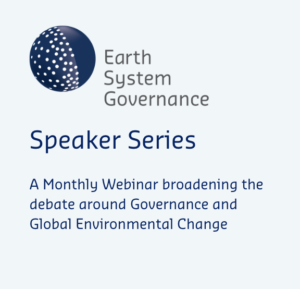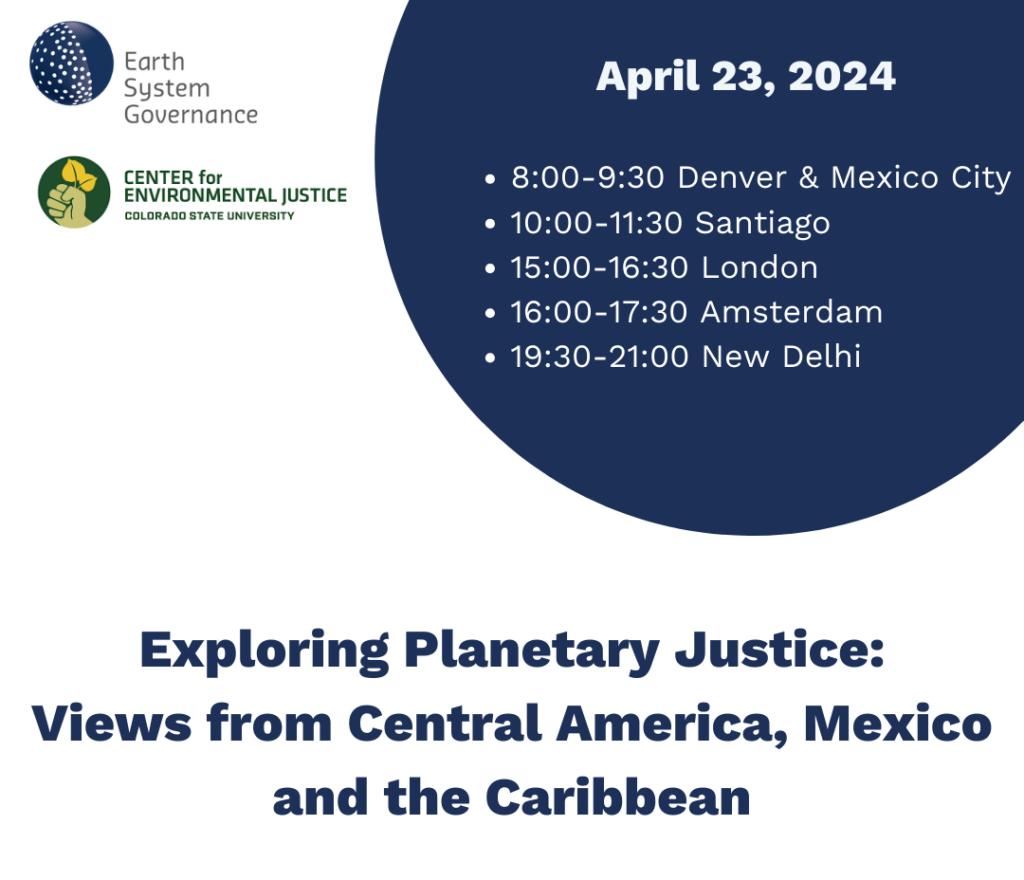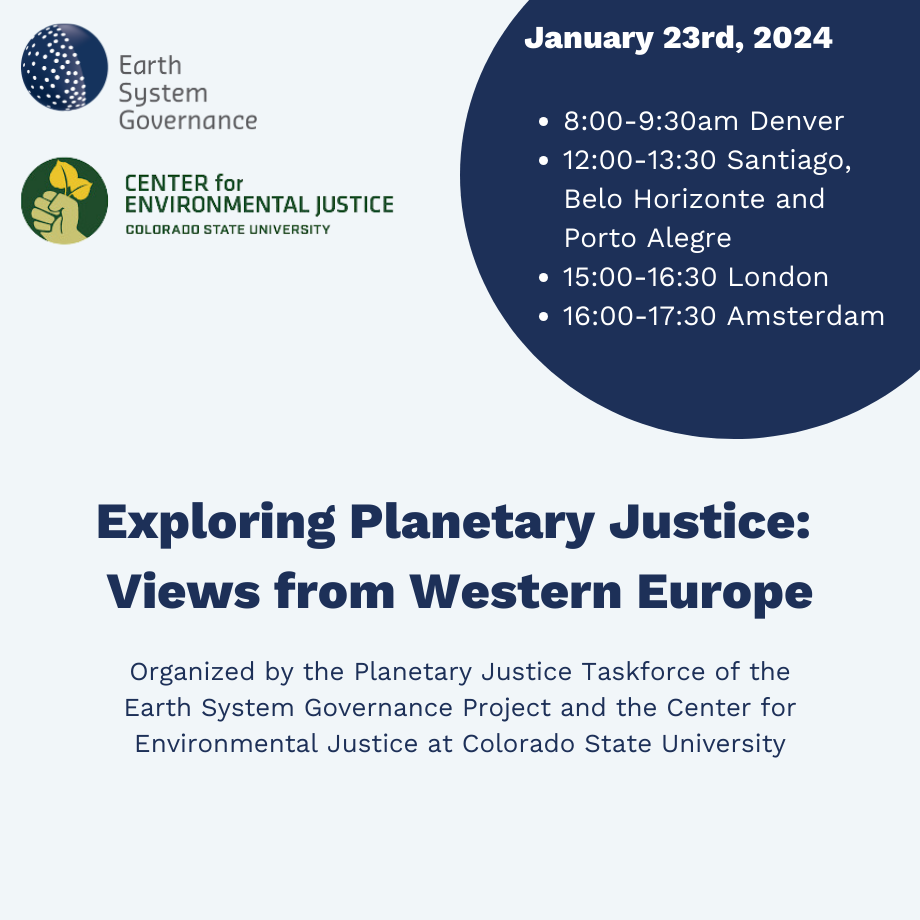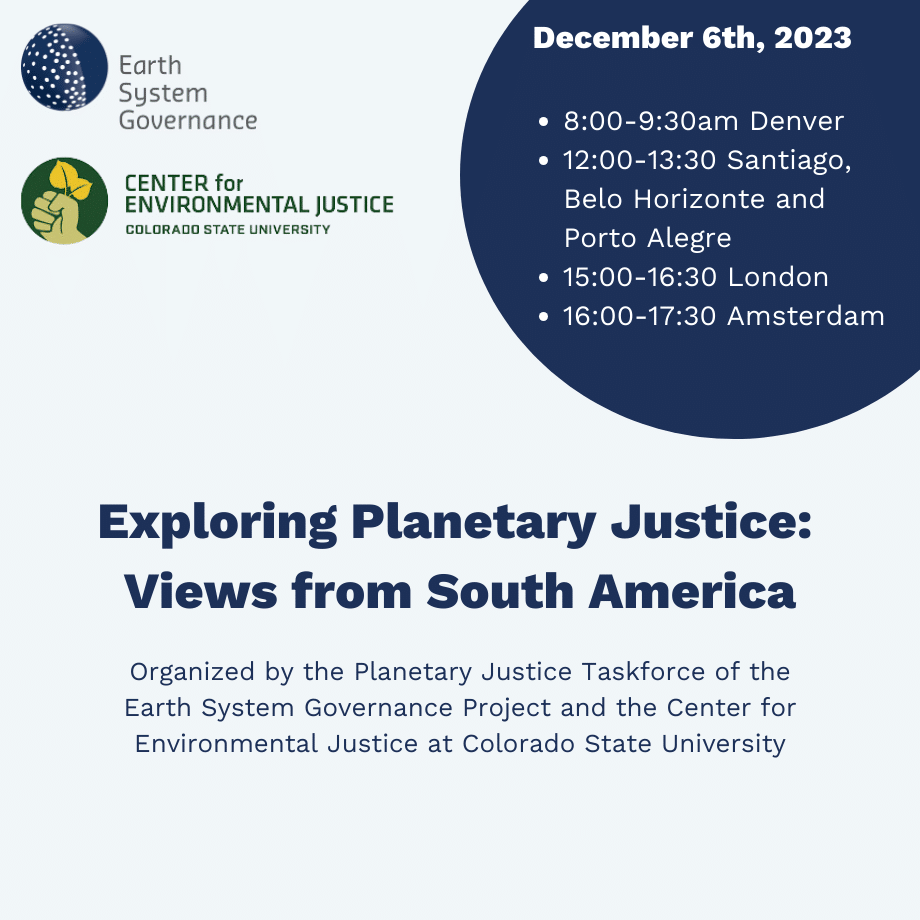“Climate action now!”
Time is a crucial part of environmental politics: it shapes slogans of environmental movements, modeling timeframes in IPCC reports and the perceived feasibility of social change towards sustainability. The knowledge, understanding, and imaginaries of our common planetary future are always constructed through assumptions of temporality. Despite an immediate sense of urgency in the era of the Anthropocene, there is an ongoing tension between nearsighted political cycles and decision-making, with respect to posited conditions required to reach long-term socio-ecological sustainability.
In this ESG Speaker Series webinar, hosted on 25 March 16:00-17:00 (UTC+1) by the Earth System Governance Project and the Urban Futures Studio of Utrecht University, we examine how the notion of time is used, shapes and constructs environmental politics from multiple social science perspectives.
Philosophers have addressed the issue of deep time, especially regarding environmental issues and our response to them over the course of millennia. Political scientists have addressed it in comparison to what is called “political time” or quick time, which is the instant response to issues, such as media communication. Likewise, sustainability scientists at large focus on the construction of environmental futures, and the politics of anticipation that make such futures persuasive. Across these disciplines, there is a shared worry that contemporary conceptions of time are inhibiting meaningful progress in environmental politics.
In this webinar, we take a closer look at different perspectives on ‘time’ – and the role of temporality in earth system governance research and environmental politics.
Jeroen Oomen is postdoctoral researcher at the Urban Futures Studio, where his research focuses on the social, cultural, and scientific practices that create societies’ conceptions of the future. Coming from an interdisciplinary background spanning philosophy, political science, sociology, and the history of science and technology, Jeroen’s main interest is in how knowledge is made, and what the consequences are of particular types of knowledge for social organizations, democracy, and power structures.
Manjana Milkoreit is a Postdoctoral Researcher in the Department of Sociology and Human Geography at the University of Oslo. Her research integrates global environmental governance and cognitive theories to study actor motivations, institutional design and political behavior related to climate change. She focuses in particular on science-policy interactions, the role of future thinking/imagination in climate governance, and transformations and social tipping processes towards sustainability.
Victor Galaz is an Associate Professor in political science, deputy director of the Stockholm Resilience Centre, and programme director of the Beijer Institute’s Governance, Technology and Complexity programme. His research explores governance challenges created by rapid global change, including globally networked risks, governance dimensions of “planetary boundaries”, the interplay between financial systems and Earth system dynamics, and the sustainability implications of novel technologies.
Each speaker will share their perspectives on this theme, followed by a 15-minute opportunity for audience questions. This webinar will be hosted on zoom.




